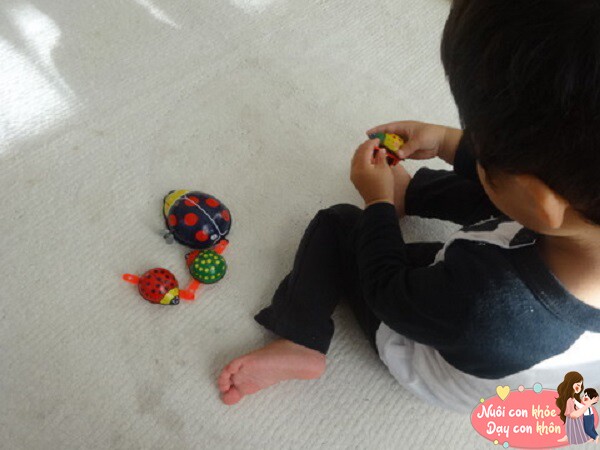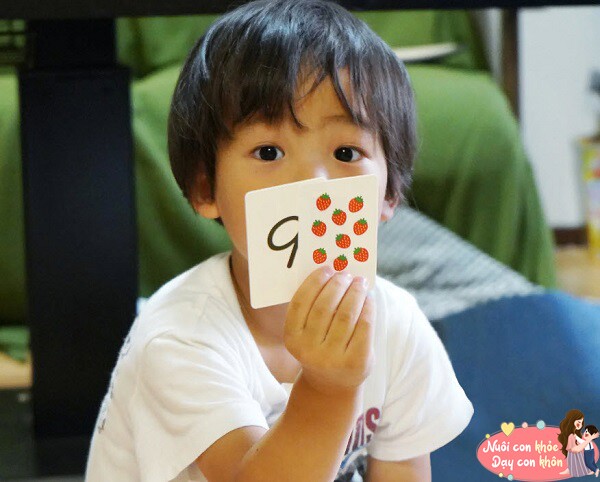## How can we assess if a child has a higher-than-average intellectual potential?
Research has shown that children exhibiting the following signs indicate that their parents are nurturing a child with a high IQ.

### A Strong Desire to Explore
Take the example of A Minh, a four-year-old boy who is curious about everything around him. Whether it’s the remote control, his father’s glasses, a falling leaf, or an ant outside, his interest is easily piqued.
He constantly pesters his parents with “why” questions, ranging from “Why is the sky blue?” to “Why can birds fly, but I can’t?”. His curiosity seems insatiable.
A Minh also loves to tinker and often takes apart his toys to understand how they work.

This desire to explore is one of the most prominent traits of children with high IQs. They are curious about the unknown and eager to find answers through observation and experimentation.
This constant quest for knowledge accelerates cognitive development and fosters innovative and problem-solving thinking.
Parents of such children should be patient, supportive, and encouraging of their inquisitiveness and hands-on approach. It is also important to guide them on safety during their explorations and teach them to respect others’ belongings.

### Quick Learning and Excellent Memory
Take the case of five-year-old Hoa, who can recite hundreds of poems by heart and accurately name the capitals and flags of numerous countries.
What’s more impressive is her ability to quickly grasp the key points when learning new knowledge. Even complex mathematical concepts are no match for her.
In kindergarten, she is always the first to complete her teacher’s tasks with remarkable accuracy, earning praise for her exceptional learning abilities.

Indeed, a quick learning pace and excellent memory are hallmarks of children with high IQs. Their brains seem to possess a more efficient information processing system, allowing them to absorb and retain new knowledge swiftly.
However, these children may become bored with simple learning content. Therefore, parents should provide more challenging learning materials to stimulate their curiosity and also cultivate patience and perseverance to prevent a lack of focus due to an overly comfortable learning environment.

### Strong Logical Thinking and Problem-Solving Skills
Eight-year-old Ly is a perfect example of a child with a special fondness for logic puzzles, whether they be riddles, Sudoku, or detective novels.
During a family gathering, the adults played a game of “Spot the Spy,” and Ly, with her keen observation skills and logical reasoning, quickly identified the “spy” among them, leaving everyone impressed.
In her daily life, Ly often applies logical thinking to solve complex problems. For instance, she can plan a family vacation based on weather forecasts and schedules.

Strong logical thinking and problem-solving abilities are crucial characteristics of children with high IQs. They excel at extracting key information from complex data, identifying the crux of an issue, and proposing effective solutions.
These skills will benefit their academic pursuits and play an essential role in their future lives and careers.
To support such children, parents should encourage participation in activities that demand logical thinking, such as programming or chess. It is also vital to nurture their empathy and teamwork skills.
While these signs indicate a child’s high intellectual potential, it is essential for parents to focus on their child’s holistic development, respect their personality and interests, and provide a suitable environment for growth. Emotional intelligence, creativity, and empathy are equally important in a child’s overall well-being and success.
The Top 3 Traits Sons Inherit From Their Mothers’ Genes.
When a child is born, people often wonder who they resemble more – their mother or father. The truth is, they inherit a mix of features from both parents. However, it’s not uncommon for a child to favor one parent over the other in certain aspects. Some children may bear a stronger resemblance to their mother, while others may lean more towards their father, and this can vary across different features and traits.





































